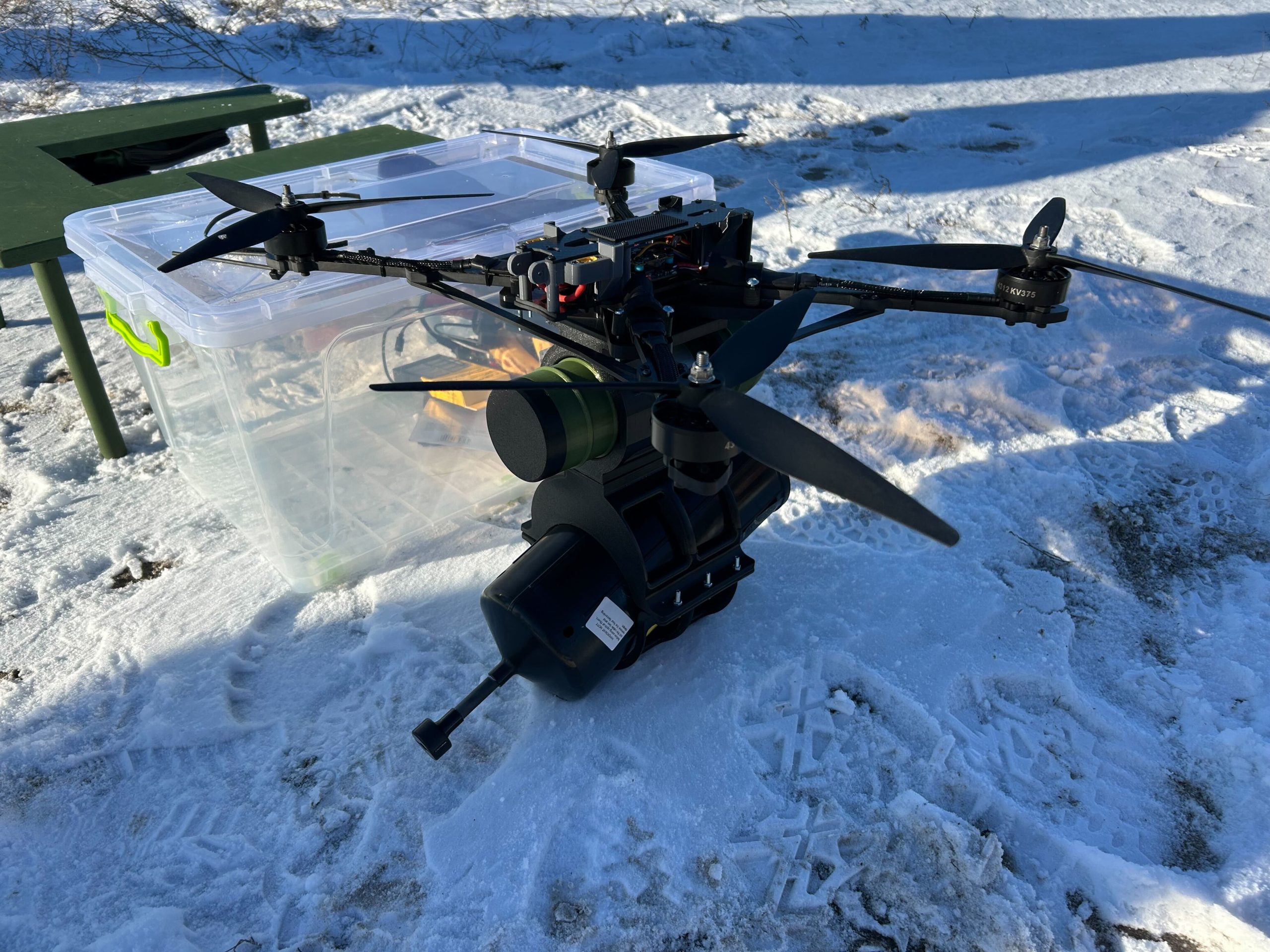Ukrainian ground drones get jamming-resistant fiber-optic control
The Dronarium team showcased new fiber-optic control systems for both aerial and ground drones, making them immune to electronic countermeasures.


Ukrainian developers have demonstrated new fiber-optic communication systems integrated into military drones, significantly enhancing their combat capabilities, Militarnyi reported on 17 December.
During a Demo Day event by the Dronarium team, journalists observed the integration of fiber-optic control systems in both ground and aerial unmanned platforms. Drinarium’s Demoday system includes a special coil weighing 2.3 kg with a wire length of up to 10 km, along with a media converter and flight controller, according to Militarnyi.
The technology provides stable transmission of telemetry, control, and video data with minimal delay, featuring bandwidth from 100 to 1000 Mbps. According to Militarnyi, the system demonstrated effective maneuvering over rough terrain, including reversing capabilities for ground platforms.
More fiber-optic aerial drones
The Russians were first to adopt the fiber-optic guidance for the first-person-view (FPV) drones. Subsequently, other Ukrainian developers adopted the technology, first integrating it into FPVs and later into heavy bomber drones.
Dronarium’s demonstration of their optically-guided aerial drones included aggressive maneuvering of FPV drones with fiber-optic control and payload, as well as bomber multicopters conducting missions over forested areas. The team also showcased FPV drones dropping munitions and performing combat missions.

A key advantage of the system is its complete resistance to enemy electronic countermeasures. The technology costs ten times less than secure radio communication systems while offering superior technical characteristics. While fiber breakage remains a potential concern, developers address this through reliable materials, protective covers, and operator training.
The system proves particularly effective in dense urban or wooded areas where traditional radio signals face interference, enabling stable communication under any conditions, Militarnyi noted.
According to one of the Dronarium developers, in addition to immunity to electronic warfare, the widespread use of fiber-optic technology will enable more drones to operate simultaneously within the same sector of the front, as it frees up the limited radio channels used by traditional FPVs.
Related:
- Forbes: Modified $90,000 sport plane drones give Ukraine 800-mile strike range
- Forbes: Ukraine’s anti-tank missiles still outshoot drones in Kursk combat
- Ukrainian Defense Ministry delivers over 1.2 million drones to defenders in 2024
- The Washington Post: Ukraine helped Syrian rebels by supplying drones and providing ”other support”
- Drone wars: Ukrainian FPV destroys Russian fiber optic-controlled drone (video)
- New Chinese restrictions target drone supply chains, vital for Ukraine defense
- Zelenskyy: Palianytsia in mass production, Ruta missile trials successful
- Ukraine tests fiber-optic guided hexacopter bombers to counter jamming
- Ukraine develops unjammable fiber optic FPV attack drone, catching up to Russia’s innovation



